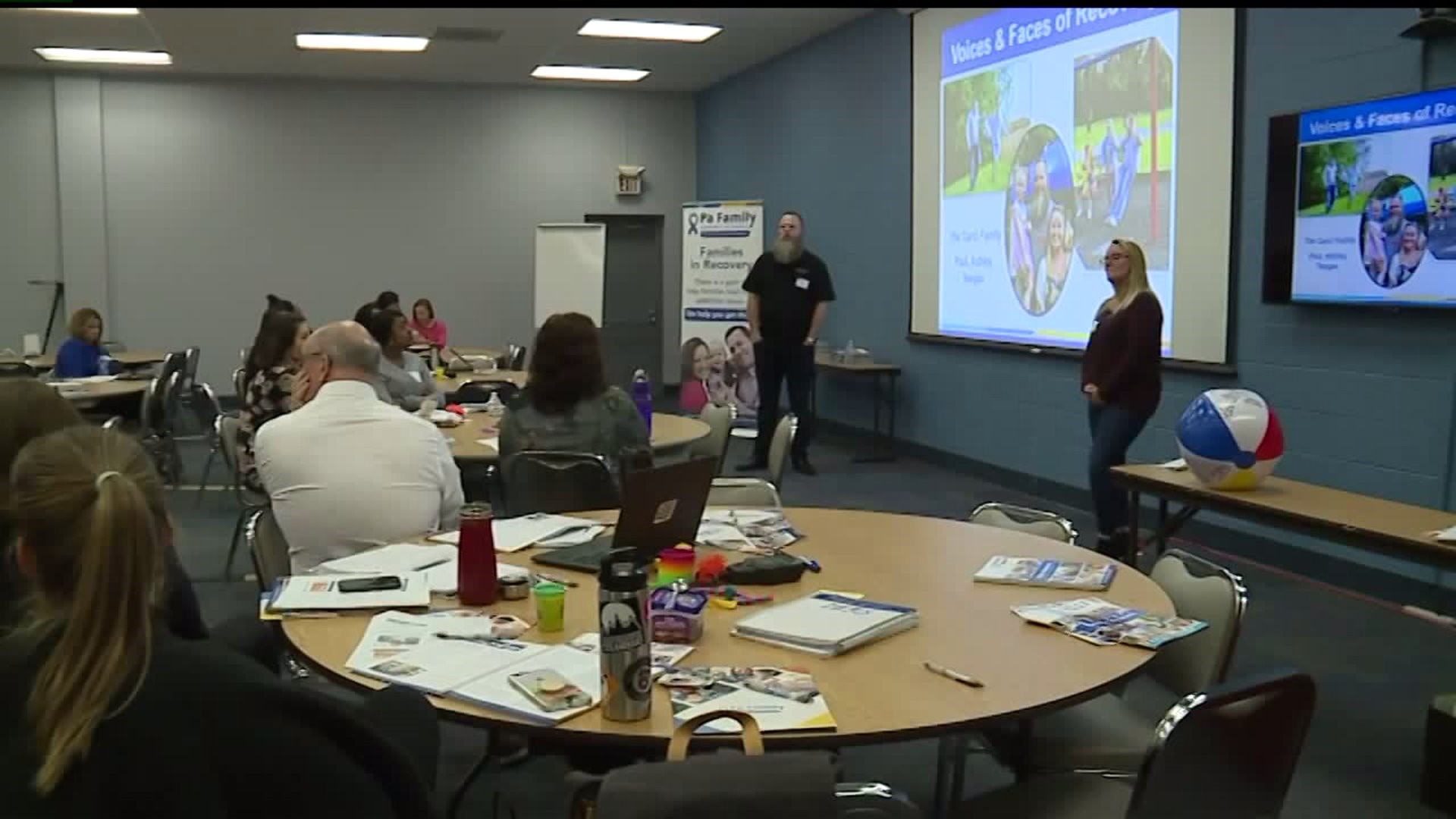LOWER PAXTON TOWNSHIP, DAUPHIN COUNTY, Pa. - Some family centers across the Commonwealth began training for a new pilot program Thursday. The program, offered by Pennsylvania Family Support Alliance, will help families in recovery.
"I want to give them a chance to become a family again."
Substance use disorder can tear a family apart, and up until now there wasn't a program offered statewide that could help recovering addicts learn how to pick up the broken pieces of their families.
"Often what happens is when people get clean and sober and they go to treatment and they miss an important component," said Kayla Kressler, Pennsylvania Family Support Alliance Director of Prevention Programs. "Which is: 'How do I leave here and be a good healthy, sober, safe parent?'"
Pennsylvania Family Support Alliance is now training at 12 family centers from across the state, including Perry County Family Center, on a pilot program called "Families in Recovery." It will be a 7-week workshop for parents in recovery giving them the tools on how to nurture their own wellness and also be the parent their child needs.
"They deserve to be treated with dignity and respect and given the opportunity to receive treatment that's focused on how to be a parent," said Ashley Hunter, a recovering addict. "Because most people early in recovery or even still using don't know how to be parents and they just need help."
In Perry County there is a lack of services for people overcoming addiction. Shelley Dreyer-Aurila, director of Perry County Family Center, already teaches parenting classes in the prison and sees first-hand the destruction addiction can have on a family. Being able to offer this type of comprehensive program in addiction to their other services will help make families stronger.
"There is not a lot of support when they get out, they may go to rehab but then they go right back," said Dreyer-Aurila. "It's a vicious cycle and I'm hoping this support will help everyone."
For more information on this pilot program, click here.

